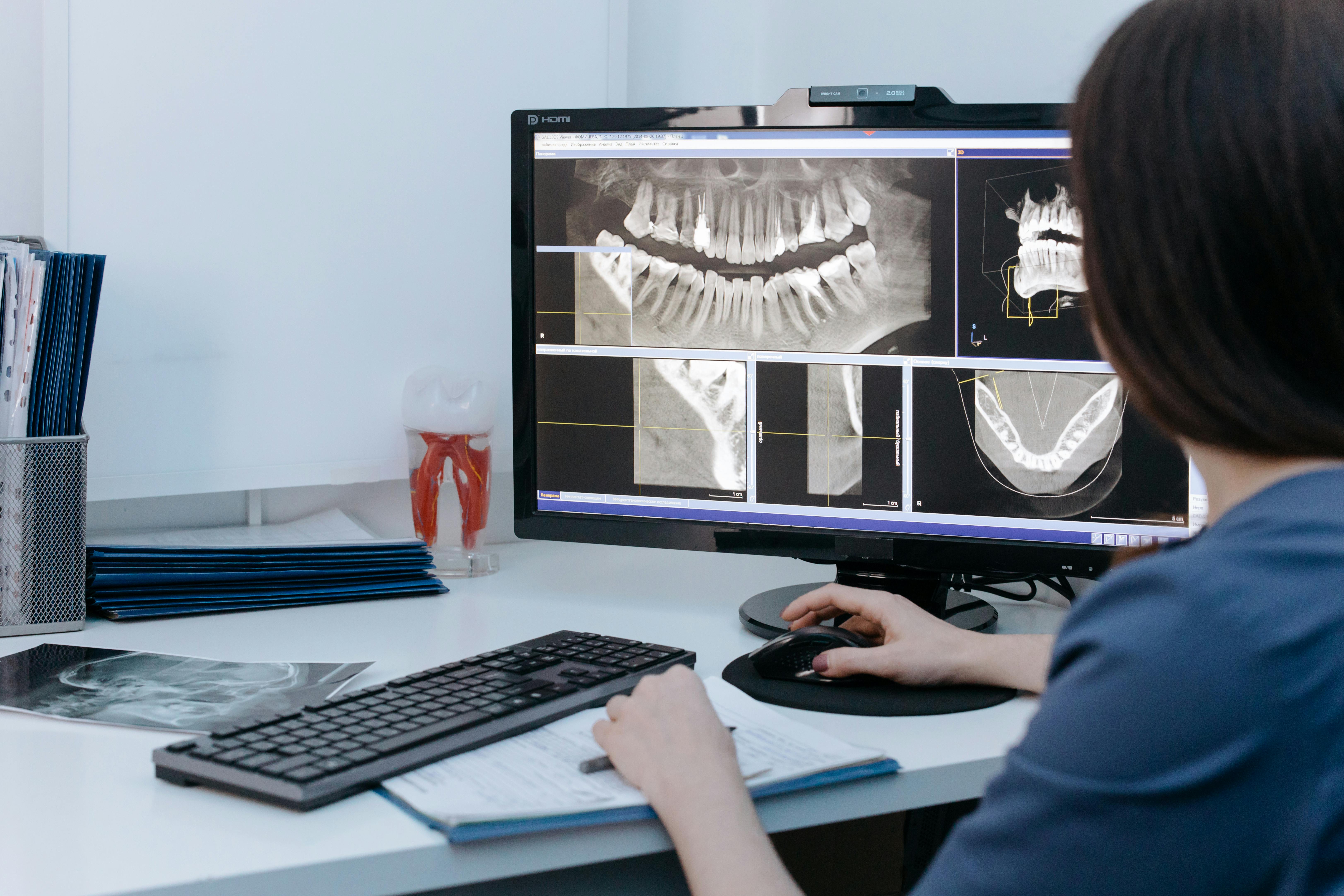False back teeth, also known as dentures, are a popular option for people who have lost one or more of their natural teeth. Dentures can help to restore the aesthetics of your smile, improve your ability to chew food, and even help with speaking and pronunciation. In this article, we will discuss the advantages and disadvantages of false back teeth, what to expect when getting false back teeth, and how to care for them.False back teeth are the name given to artificial teeth that are used as replacements for missing molars and premolars. False back teeth are usually made from either porcelain or acrylic and they are attached to the remaining natural teeth using a bridge or dentures. They can be used to restore a person’s ability to chew and speak properly, as well as give them a more natural aesthetic appearance.
Pros of False Back Teeth
False back teeth, also known as dentures, are a great way to replace lost or missing teeth. They can be used to restore the appearance of your smile and help you chew and speak properly. They provide a comfortable fit and can last for many years with proper care. Other benefits include:
- Improved Appearance – Dentures can give you a natural looking smile that can help boost your confidence.
- Better Chewing – Dentures allow you to chew food properly, which helps with digestion.
- Comfortable Fit – Dentures are designed to fit comfortably in your mouth, so they won’t feel uncomfortable or awkward.
- Cost-Effective – Dentures are a cost-effective way to replace missing teeth compared to more expensive options like dental implants.
Cons of False Back Teeth
False back teeth do have some drawbacks that should be considered before making the decision to get dentures. These drawbacks include:
- Difficult Adjustments – Over time, dentures may need adjustments as your mouth changes shape due to age or weight loss/gain.
- Slipping and Irritation – Dentures may slip or irritate the gum tissue if not fitted properly.
- Oral Health Issues – Poorly fitting dentures may cause oral health issues such as gum disease or decay.
How Much Do False Back Teeth Cost?
The cost of false back teeth, or dentures, can vary depending on the type of dentures you need and the complexity of your case. Generally speaking, full dentures typically cost between $1,500 and $3,000 for a complete set. Partial dentures can cost anywhere from $300 to $4,000 or more. Implant-supported dentures are usually the most expensive option and can range from around $5,000 to as much as $30,000.
The price of false back teeth is also affected by the materials used to make them. Dentures made with higher quality materials may last longer and look better than those made with lower quality materials. Additionally, the experience level of your dentist or prosthodontist will also factor into the overall cost of your dentures.
Your dental insurance plan may cover some of the costs associated with false back teeth; however, most plans do not cover all types of dentures or all treatments related to them. It is important to check with your insurance provider to determine what types of services are covered under your plan before making any decisions about treatment options.
Partial Dentures
Partial dentures are the most common type of false back teeth. They are used to replace missing teeth and fill in the gaps left by them. Partial dentures are made of acrylic and can be fixed or removable. Fixed partial dentures are permanently attached to the adjacent remaining teeth and are not removable by the patient. Removable partial dentures can be taken out for cleaning or replacement. They usually have metal clasps that attach them to the adjacent natural teeth for support.
Implant-Supported Dentures
Implant-supported dentures use dental implants, which are small titanium posts, to stabilize the false teeth in place. A small hole is drilled into the jawbone, and a metal post is inserted into it. The post acts as an anchor for a special type of denture that snaps onto it. Implant-supported dentures provide more stability than traditional removable dentures, and they look and feel more like natural teeth.
Overdentures
Overdentures are similar to implant-supported dentures, but instead of using implants, they use existing teeth as anchors for the false back teeth. Overdentures use a special type of retainer that attaches to the remaining teeth with metal clips. This helps keep the false back teeth in place while allowing them to be removed for cleaning or replacement.
Flexible Denture
Flexible denture is another type of false back tooth used when traditional acrylic denture cannot be used due to severe gum disease or lack of supporting tissue. Flexible denture is made from thin flexible material which is more comfortable than traditional acrylic material. It also requires fewer adjustments as it conforms easily with changes in mouth shape over time.
Is It Possible to Get False Back Teeth?
Yes, it is possible to get false back teeth. False back teeth, also known as dentures, are prosthetic teeth that can be worn to replace missing teeth. Dentures are made of either acrylic or metal and are custom fitted for each individual patient. They can be used to replace a single missing tooth, multiple missing teeth, or an entire arch of missing teeth. The advantage of dentures is that they are relatively affordable and can be easily replaced if they become worn or damaged. However, dentures require regular maintenance and need to be regularly adjusted in order to ensure a proper fit. Additionally, the use of dentures may reduce the ability to taste food properly and can cause discomfort in some patients. For these reasons, many people opt for more permanent solutions such as dental implants or bridges.

Benefits of Having False Back Teeth
False back teeth are a great option for anyone who has lost their natural teeth. False back teeth can provide a number of benefits, including improved speech, improved appearance, and better chewing ability.
Speech can be greatly improved by having false back teeth. False back teeth provide the support to help with speech sounds such as “th” and “s” that are difficult to make without the support of natural teeth.
Appearance can also be greatly improved with false back teeth. False back teeth are designed to look just like natural teeth and they provide a more symmetrical smile than missing or broken natural teeth.
Chewing ability is also improved with false back teeth. With false back teeth, a person can chew food better than if they were missing their natural teeth or had broken natural teeth. This makes it easier to eat all types of foods without having to avoid certain types due to difficulty in chewing them.
False back teeth also improve oral health overall. Since the false back teeth fill in the spaces where missing or broken natural teeth used to be, this prevents food from becoming lodged in those areas and leading to gum disease or other oral health problems.
Overall, false back teeth are a great option for anyone who has lost their natural teeth and is looking for an effective way to improve their appearance, speech, and chewing ability while also improving their overall oral health.
Getting False Back Teeth
Getting false back teeth, or dentures, can be an important step in restoring your smile. The process of getting false back teeth begins with a consultation with your dentist or prosthodontist to determine which type of dentures are best for you. During the consultation, your dentist will take impressions and measurements of your mouth to create a customized set of dentures.
Once the impressions and measurements have been taken, your dentist will send them off to a dental lab where the dentures will be fabricated. Depending on the type of dentures you choose, it may take several weeks for them to be completed. Once they are finished, you will return to the office and have them fitted and adjusted for comfort and proper fit. Your dentist may ask you to come back for follow-up appointments to make sure that the fit is correct and that your mouth is adjusting correctly.
Your dentist may also prescribe medications such as pain relievers or antibiotics if needed. It is important that you follow all instructions given by your dentist in order to ensure that your false back teeth stay in good condition. With proper care and maintenance, they should last many years before needing to be replaced or adjusted.
In addition to getting false back teeth from your dentist, there are also options available online for purchasing dentures at discounted prices. These online options usually offer basic sets of dentures that are not customized to fit each individual patient’s mouth, so it is important to consult with a professional before making any purchases online.
Health Risks Associated With False Back Teeth
False back teeth, also known as dental bridges, are a common dental restoration used to replace missing or extracted teeth. While dental bridges can improve the appearance of your smile and make it easier to speak and eat, there are potential health risks associated with them that you should be aware of.
The most common health risk associated with false back teeth is the development of periodontal (gum) disease. This is because bacteria can accumulate in the gap where the bridge connects to your natural teeth, leading to infection and inflammation of the gums. Other potential risks include tooth decay, nerve damage, and TMJ disorder (a condition that affects the jaw joint).
It’s important to practice good oral hygiene while wearing false back teeth in order to help prevent these health risks from occurring. Brush your teeth twice a day with a soft-bristled toothbrush and floss regularly. Make sure to visit your dentist regularly for checkups and cleanings so they can monitor your oral health and look for any signs of developing problems.

Conclusion
False teeth, also known as dentures, can be a great solution for those who have lost their natural teeth. They provide the wearer with improved appearance, comfort, and improved function of the mouth. False teeth are available in a variety of styles and materials to meet the individual’s needs. They are typically custom-made to fit the person’s mouth perfectly. Dentures should be cared for properly in order to maintain their shape and function. Regular cleaning and regular visits to the dentist are important for maintaining healthy false teeth.
False teeth can be quite expensive depending on the type being purchased. Insurance coverage may help offset some of this cost. It is important to remember that false teeth are not a permanent solution for replacing natural teeth; they must be replaced periodically as needed. Ultimately, those considering false teeth should research thoroughly before making any decisions about which type would best suit their needs.
